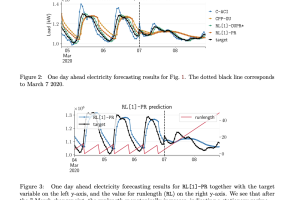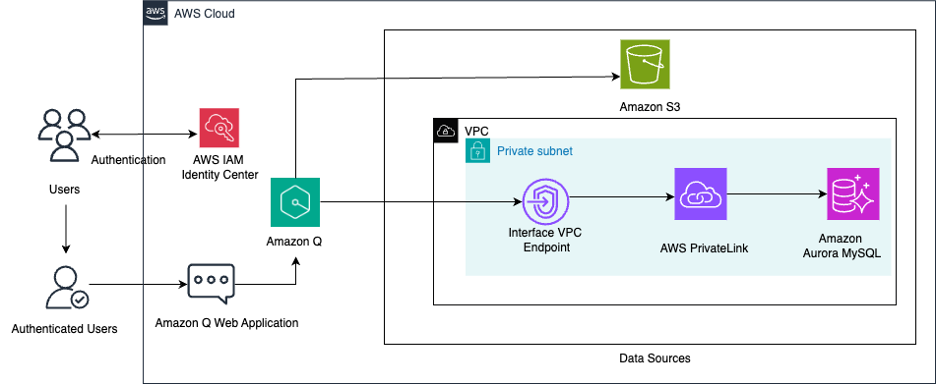In a compelling interview, Shailja Gupta, an AI Product Manager at ADP, shares her transformative experience at Carnegie Mellon University, which solidified her passion for AI and product management. Her journey highlights the importance of data-driven decision-making and the practical application of AI in real-world product challenges. At ADP, she navigates significant challenges, including ensuring model accuracy with sensitive HR data and balancing innovation with user experience. Shailja emphasizes the impact of AI on business operations, enhancing data analysis and streamlining tasks. She also discusses effective strategies for leveraging data analytics and foresees the future of work evolving with AI, emphasizing the need for adaptability and continuous learning. Finally, she offers advice to aspiring product managers and shares her excitement about AI’s potential for scientific discovery.
Shailja, can you share a pivotal moment in your career that solidified your passion for AI and product management?
My experience at the Data Science for Product Managers project at Carnegie Mellon University was truly transformative and solidified my passion for AI and Product Management. It opened my eyes to the power of data-driven decision-making in product development, moving beyond intuition to leveraging quantitative insights. Learning advanced techniques like preference modeling, time series forecasting, and clustering equipped me with powerful tools to address common product management challenges more effectively. This project allowed me to apply cutting-edge AI techniques to real-world product challenges in ad tech. We used predictive analytics and generative AI to optimize ad creatives and forecast performance, significantly improving our work quality. The hands-on experience of integrating AI into product development, from data-driven decision-making to addressing ethical considerations, was invaluable. It enhanced our project outcomes and prepared me for the complexities of AI-driven product management in the real world. This experience reinforced my passion for the field and provided me with practical skills that I’m now applying in my role at ADP.
As an AI Product Manager at ADP, what are some of the most significant challenges you’ve faced while integrating AI and machine learning into product features?
One of the most pressing issues has been ensuring the accuracy and reliability of our predictive models, particularly given the sensitive nature of HR and payroll data. We’ve had to carefully balance innovation with ethical considerations and compliance requirements, especially when dealing with the HCM dataset. Another major challenge has been seamlessly integrating AI features in a way that enhances rather than complicates the user experience. This has required extensive user testing and iterative improvements, particularly for our conversational AI interfaces. Additionally, managing cross-functional teams and aligning different stakeholders’ expectations has been an ongoing challenge. Coordinating between data scientists, engineers, UX designers, and business stakeholders to deliver cohesive AI-powered solutions demands constant communication and strategic program management. Despite these challenges, the process has been rewarding, pushing us to develop more sophisticated, ethical, and user-friendly AI solutions.
In your experience, how has the rise of AI and automation impacted business operations and decision-making processes?
The rise of AI and automation has fundamentally transformed business operations and decision-making processes across industries. In my experience, I’ve seen AI significantly enhance data analysis capabilities, enabling more accurate predictions and faster insights. This has led to more informed, data-driven decision-making at all levels of organizations. AI Automation has streamlined many routine tasks, freeing up employees to focus on more strategic, creative work. For instance, AI-powered systems can now handle complex calculations and compliance checks, reducing errors and improving efficiency. However, this shift has also brought new challenges, such as the need to reskill employees and ensure the ethical use of AI. Decision-making processes have become more complex, requiring a balance between AI-generated insights and human judgment. Overall, while AI and automation have greatly improved operational efficiency and decision quality, they’ve also necessitated a reimagining of workflows, job roles, and strategic planning in business.
What strategies do you employ to leverage data analytics effectively to drive product innovation and enhance user experience?
To effectively leverage data analytics for product innovation and enhanced user experience, I employ a multi-faceted approach. I start by establishing clear, measurable objectives aligned with our product goals, ensuring our data efforts are targeted and meaningful. My strategy involves collecting diverse data types and combining quantitative usage metrics with qualitative user insights to gain a comprehensive understanding of user needs. Cross-functional collaboration is key, as I work closely with data scientists, engineers, and UX designers to translate insights into actionable improvements. I’m a strong advocate for A/B testing and iterative development, continuously experimenting to refine our products based on real user data. Predictive analytics plays a crucial role in anticipating future user needs and proactively developing features. Throughout this process, I maintain a strong focus on data privacy and ethical considerations, particularly important when dealing with sensitive information. This approach has consistently helped us create more intuitive, efficient, and personalized products that truly meet user needs and drive business value.
How do you foresee the future of work evolving with the increasing adoption of AI technologies, and what skills do you think will be most critical for professionals to develop?
The increasing adoption of AI technologies is poised to dramatically reshape the future of work. I foresee a shift towards more collaborative human-AI workflows, with automation handling routine tasks and allowing professionals to focus on strategic thinking and complex problem-solving. This evolution will likely spawn new roles at the intersection of AI and traditional disciplines. In this changing landscape, I believe the most critical skills for professionals to develop will be adaptability, continuous learning, and strong analytical abilities. The capacity to work alongside AI systems and interpret data-driven insights will be crucial. Additionally, uniquely human skills like emotional intelligence, creativity, and complex communication will gain importance. Ethical AI use and governance skills will also be vital. Fundamentally, a basic understanding of AI concepts will become necessary across many professions, enabling individuals to effectively leverage AI tools and make informed decisions about AI integration in their fields.
What leadership qualities do you believe are essential for managing a team working on AI and machine learning projects?
Leading an AI/machine learning team requires a leader who can bridge the gap between technical expertise and human-centered vision. They need to possess a strong understanding of data and AI concepts to guide the project’s technical direction. But more than that, they should be a strategic thinker who can translate business goals into actionable plans and foster a collaborative environment. This means being an effective communicator, able to bridge the gap between data scientists, engineers, and other specialists to harness the collective power of the team and turn AI’s potential into reality.
What advice would you give to aspiring product managers who are looking to specialize in AI and machine learning?
For aspiring AI product managers, it’s crucial to build a strong foundation in both classic product management and data analysis. Grasp user needs and become comfortable with data collection and interpretation. Next, deepen your AI/ML knowledge through focused courses or even a degree. However, don’t underestimate the power of practical experience. Engage in online tutorials or competitions to solidify your learnings. Remember, AI should always serve a business purpose. Focus on how it can solve real problems and deliver value to users. Embrace the iterative nature of AI. Be prepared to experiment, learn from failures, and constantly adapt your approach. This blend of technical and business acumen will position you for success in the exciting world of AI product management.
In addition to your professional work, are there any current trends or developments in AI that particularly excite you, and why?
I’m particularly excited about the potential of AI for scientific discovery and innovation. AI can analyze massive datasets and identify patterns that humans might miss. This could lead to breakthroughs in fields like medicine, materials science, and astronomy.
For example, imagine using AI to analyze data from millions of patients to identify new drug targets or treatment options. Or using AI to analyze data from telescopes to discover new planets or understand the formation of galaxies. The possibilities are truly mind-boggling.











